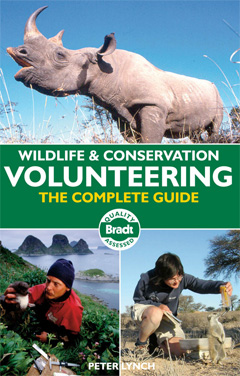Four of the world’s rarest tortoises have been stolen from a captive breeding program in Madagascar. The critically endangered animals were part of a group of 44 due for release by the Durrell Wildlife Conservation Trust and were being held in pre-release enclosures at a secret location.
The Trust fears the stolen ploughshare tortoises are destined for Europe, USA or Asia where collectors will pay thousands of dollars for individuals due to the rarity of the species. It is estimated that only 500 adults remain in the wild and they are only found in Baly Bay national park, where the tortoises were taken from.
After extensive investigations in the area arrests have been made but the tortoises are yet to be recovered.

Ploughshare Tortoises. Photo by Daniel Austin. |
“As with many other species around the world, greed is proving to be the major threat facing the ploughshare tortoise. The selfish desires of foreign collectors could in the end send this species to extinction” says Andrew Terry, Durrell’s Conservation Manager.
Traffickers pay poor local people to find the animals but the real problem lies with private collectors and buyers who continue to make the illegal trade of such rare species a lucrative business. Malagasy and foreign authorities have made attempts to put a stop to the smuggling, but recent political unrest and consequent lack of law enforcement has provided opportunities for traffickers.
“Durrell, the government of Madagascar and our partners are doing what we can to protect and restore the ploughshare, but if the international demand remains this high we will end up fighting a losing battle” Terry continues. “We have to work with local authorities to increase enforcement of the law within Madagascar, but equally we need to increase pressure on the collectors in Europe and Asia.”

Volunteering guide . Exclusive discount code for Mongabay readers to give them 30% discount off this title when they order through the Bradt website and quote coupon code MONGABAY30 at checkout. |
This is not the first time ploughshare tortoises have been stolen from Durrell. Seventy five animals were taken from the organization’s main project base in 1996, forcing them to erect fences around the breeding enclosures. It took several months to track the stolen tortoises down. They were eventually recovered in Europe but will never be able to return to the wild for fear that they may bring diseases with them to which the wild population has no resistance to. There is concern that a similar situation could arise with the latest stolen individuals.
Durrell had spent years raising the tortoises which were reaching maturity. The organization has long worked for the protection of this species, the largest of Madagascar’s tortoises. Adults may reach up to 45cm in length. As well as the captive breeding programme, Durrell works with village communities and government authorities to protect the tortoises’ habitat, and undertakes research to understand its ecology and support its management. Major threats to the species are bush fires, bush pigs and the illegal pet trade. Durrell hopes law enforcement agencies in Madagascar and abroad will do more to clamp down on the global trade of such threatened species.







